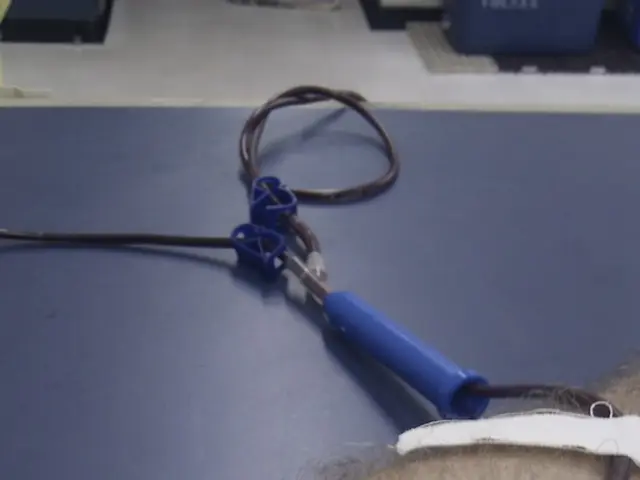Diet for Cholangiocarcinoma: Foods to Consume When Suffering from Bile Duct Cancer
As you navigate your cholangiocarcinoma journey, you might have experienced a drop in your appetite. This isn't unusual, as the cancer itself or treatment side effects like chemotherapy and radiation can affect your eating habits.
In such situations, your diet can significantly impact your overall health and well-being. Registered dietitian Nickie Kaetzel, MS, RDN, LD explains the role of your bile duct in digestion and how it might influence your weight during treatment.
Bile Duct: The Unsung Hero
Your bile ducts are responsible for transporting bile from your liver and gallbladder to your small intestine. Bile aids in breaking down the fats in the food you consume, ensuring that your body fully utilizes the calories it needs.
So, it's crucial to maintain the digestion process during treatment to avoid weight loss.
Foods to Focus On
A balanced, nutrient-rich diet is essential during cancer treatment. Prioritize lean proteins such as boneless, skinless chicken, turkey, eggs, cottage cheese, yogurt, string cheese, and peanut butter. Include avocados for healthy fats.
"Aim for a balanced, nutritious diet," recommends Kaetzel. "Adjust the meal plan based on any side effects you might experience during treatment."
Foods to Limit
Avoid high-fat, greasy foods like bacon, sausage, pepperoni, salami, and hot dogs as they may exacerbate abdominal pain, especially if your bile duct is blocked.
Foods for Managing Side Effects
If you experience nausea or vomiting, opt for bland, low-fiber foods like white bread, white rice, or low-fiber cereal for temporary relief. If constipation occurs, increase your fluid and fiber intake. Over-the-counter medication may also be suggested by your doctor.
Tips for Eating with Bile Duct Cancer
While treatment might make you feel less hungry or tired, remember these tips to maintain your nutrition:
Stay Hydrated
Keep yourself hydrated by drinking sufficient water and be mindful of the types of fluids you consume, especially if undergoing chemotherapy. Caffeinated beverages should be limited, as they can dehydrate you.
Eat Small, Frequent Meals
Opt for smaller, more frequent meals instead of three large ones to better manage appetite.
Choose Higher-Calorie Foods
Incorporate higher-calorie, higher-fat foods like full-fat dairy products, nuts, and seeds to prevent weight loss.
Be Careful with Supplements
Avoid starting any vitamin or mineral supplements while undergoing treatment, as they might interfere with certain chemotherapy drugs. If you're currently taking supplements, consult with a pharmacist to determine which ones should be stopped or continued.
Consider Protein Shakes and Powders
If necessary, protein shakes and powders can help ensure you're meeting your calorie and protein needs, maintaining muscle mass, and preventing malnutrition.
Working with a dietitian can make this process less daunting as they can offer personalized advice considering your medical history, routine, and any food allergies or preferences. They'll help create an individualized nutrition plan tailored to your needs, ultimately supporting your body during treatment.
- The healthcare history of a person battling cholangiocarcinoma might reveal a drop in their appetite due to the illness or treatment side effects.
- In such a situation, the food one consumes plays a significant role in maintaining overall health and well-being.
- The bile duct is responsible for transporting bile from the liver and gallbladder to the small intestine, aiding in fat breakdown during digestion.
- To sustain digestion during treatment and avoid weight loss, it's crucial to focus on a balanced diet rich in nutrients.
- Highly recommended food choices include lean proteins, such as boneless, skinless chicken, turkey, and low-fat dairy products, and healthy fats like avocados.
- In contrast, high-fat foods like bacon and sausage should be avoided, as they may exacerbate abdominal pain.
- For managing side effects like nausea or vomiting, opt for bland, low-fiber foods, and increase fluid and fiber intake for constipation relief.
- To maintain nutrition during treatment, stay hydrated, eat small, frequent meals, choose higher-calorie foods, and be judicious with supplements.
- Seek advice from a dietitian for personalized guidance, as they can craft an individualized nutrition plan that accounts for medical history, routine, and food preferences, ultimately supporting wellness through therapies, treatments, fitness, exercise, skin care, and weight management, including the use of CBD.








